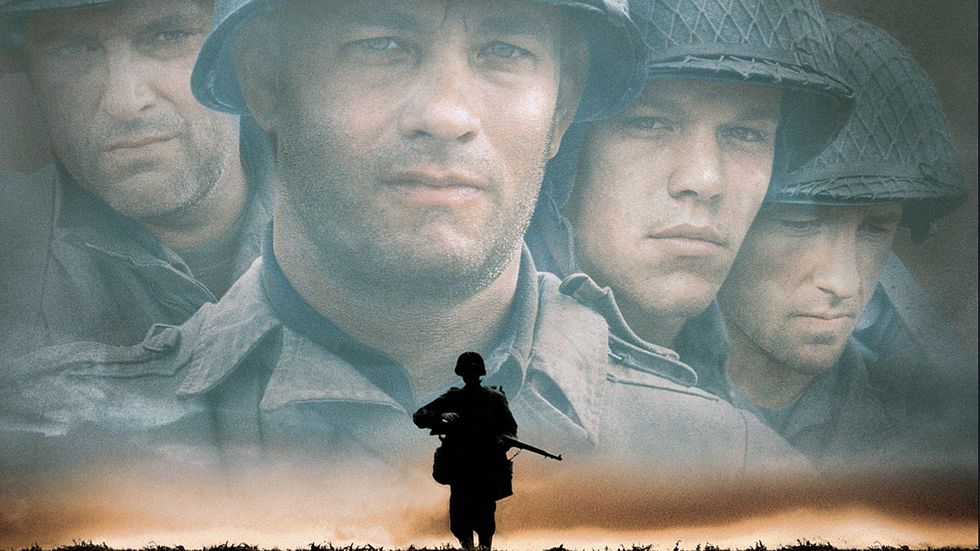This pains me to write. Christopher Nolan is my favorite director and I have nothing but respect for the man and his work. However, this most recent entry into his body of productions, "Dunkirk," disappointed me in a myriad of ways. Spoiler Alert: many plot points from both movies will be discussed so this is your only warning.
On Monday, I saw "Dunkirk" with another friend of mine who is also a huge Nolan fan and after the credits finally rolled, I, slightly apprehensive about her response, asked, “So… how did you feel about that?”. She responds with, “I was about to ask you the same thing.” in the same disappointed/ slightly worried tone of voice that I had.
What followed was a lengthy conversation about the various shortcomings of the movie that lasted pretty much the entire drive home. The following Wednesday, after watching and reading a variety of reviews incessantly praising the film, I took the time to watch Saving Private Ryan, another beloved World War II movie that I found many reviewers comparing Dunkirk to. That movie almost drove me to tears and left me an emotional wreck as I watched the words “Directed By Steven Spielberg” appear onscreen in the end. So why the polarized reactions to each film?
"Dunkirk" and "Saving Private Ryan" both open similarly. The former has a group of soldiers walking down a street and quickly turns into a massacre as they run away from gunfire. The latter opens with an unnamed veteran visiting a grave and then shifts to the affront on Omaha Beach during the Normandy, France invasion on D-Day. Both had me immediately engaged and invested. I was on the edge of my seat for both of them.
The difference? In "Saving Private Ryan," after 28 minutes of ubiquitous bloodshed and peril, the action dies down and we finally get to know some of these soldiers through scenes with dialogue and meaningful character interactions. In "Dunkirk," the action takes a brief pause then immediately picks up again without any development on who I’m assuming was supposed to be the main character. What follows is almost 147 minutes of nonstop explosions and gunfire.
One consistent aspect of "Dunkirk" that I noticed many reviewers admiring was the lack of dialogue and consistent action. This is what made it lackluster for me. In order to enjoy a movie, I have to care about the characters, and in order to care about them, I have to know something, anything about them. Do they have families waiting for them? Siblings? Lovers? Do they have some element of home life that they miss the most?
From what I understand, Nolan was going for a raw, gritty, realistic, intense depiction of war. And, in the case of the "Dunkirk" evacuation especially, there wasn’t really time to shoot the breeze and get to know your fellow soldiers. Everyone was just trying to survive and get home.
I can appreciate that- but then there are other ways we, as the audience, could’ve gotten to know the characters. If he wanted the action to be non-stop, there could’ve been a prologue type sequence to introduce us to everyone and what’s at stake for them. If he didn’t mind breaking up the action, which would’ve been my preference, he could have inserted short biographical scenes for each major character to offer some relief from the war scenes.
Assuming his goal was to drop us in the middle of the war as if we were just experiencing the events with the soldiers while lacking the same information that they lacked about each other, then Nolan was successful. But in my case, it seems he sacrificed character development, which makes or breaks a story for me. No connection with the characters meant there was no reason for me to care when they started dying.
Meanwhile, "Saving Private Ryan" showed us Private Ryan’s mother and her distress at losing three of her four sons to the war immediately following the aforementioned Omaha Beach scene. That, combined with the initial shot of the elderly veteran at the cemetery, was enough to get me emotionally engaged.
As I’m writing this another aspect comes to mind: questions. In "Dunkirk," the only question lingering in my mind was “will the characters survive?” but again since I had no connection with them, I really wasn’t that concerned about it. For "Saving Private Ryan," literally after the first shots, I was wondering, “Who’s this old guy and whose grave is he visiting?” I thought he was Capt. Miller (Tom Hanks) at first and was then worried that he was at the grave of Private Ryan.
So then I was wondering, “Wow, is the movie foreshadowing his failure already?” I couldn’t have been more wrong, but even though I didn’t know anything substantial about the characters yet, there were more details I wanted to know aside from just “will he still be breathing by the end of this?”. When "Dunkirk" finally ended, I was happy the surviving characters got rescued just because it meant the movie was finally over.
For "Saving Private Ryan," I was relieved because it meant these soldiers with whom I’d formed a bond would finally be safe. It meant that my poor children who deserved better would finally get away from the horrors of the war (or at least Private Ryan would, most everyone else had checked out in a blaze of glory- and tears, on my part).
Another element I’d like to go into further detail about is the pacing. As I’ve said, "Dunkirk" is basically one long action sequence, which means I was bored about 30 or 40 minutes in. For me, if the stakes are always high, then the stakes are never high. As a viewer, I need moments of low stakes in order for the high stakes to mean something.
Otherwise, the ongoing gunfire and explosions just get stale. I legitimately nodded off a couple of times which brings me to my next point: I was often awoken by deafening gunfire and explosions whenever I would. I have a love/ hate relationship with this movie’s sound mixing.
I understand that we’re meant to be immersed in the war. Nolan wanted us to feel like we were in the war with them rather than spectators. Fine, but as a result, every gunshot and bomb detonation was utterly deafening. I can’t say how "Saving Private Ryan" is since I watched it on my laptop rather than in a theatre, but just stylistically I feel like "Saving Private Ryan" relied more on gruesome visuals in order to immerse us and "Dunkirk" relied on jarring sound effects. I personally am inclined towards the former but that may just be a preference.
I have no qualms with either film’s cinematography or score. Hans Zimmer, possibly my favorite movie composer, did a beautiful job with the "Dunkirk" score and I really enjoyed the camera work, especially the views of the ocean. The subtle shift in blues contrasted against the chaos made for a film that was at least pleasing aesthetically. The music was equally brilliant. I particularly enjoyed it during the scene when all of the boats arrived to take some of the soldiers home; that scene was moving and would have been a lovely closer. But no, it was followed by yet another action sequence, but I digress.
I was really excited for "Dunkirk" and Nolan had never seriously disappointed me before. All I have to say is that I can appreciate some elements of it, but overall I was not entertained and as a result did not enjoy it. It’s not a bad movie, it expertly did what it set out to do, but I, personally, couldn’t get into it.
For now, "Saving Private Ryan"is my favorite war film; I need to re-watch "Apocalypse Now," though. But it probably won’t be for a while. Good war movies are way too emotionally taxing to watch back to back.




















 sunrise
StableDiffusion
sunrise
StableDiffusion
 bonfire friends
StableDiffusion
bonfire friends
StableDiffusion
 sadness
StableDiffusion
sadness
StableDiffusion

 purple skies
StableDiffusion
purple skies
StableDiffusion

 true love
StableDiffusion
true love
StableDiffusion
 My Cheerleader
StableDiffusion
My Cheerleader
StableDiffusion
 womans transformation to happiness and love
StableDiffusion
womans transformation to happiness and love
StableDiffusion
 future life together of adventures
StableDiffusion
future life together of adventures
StableDiffusion





















